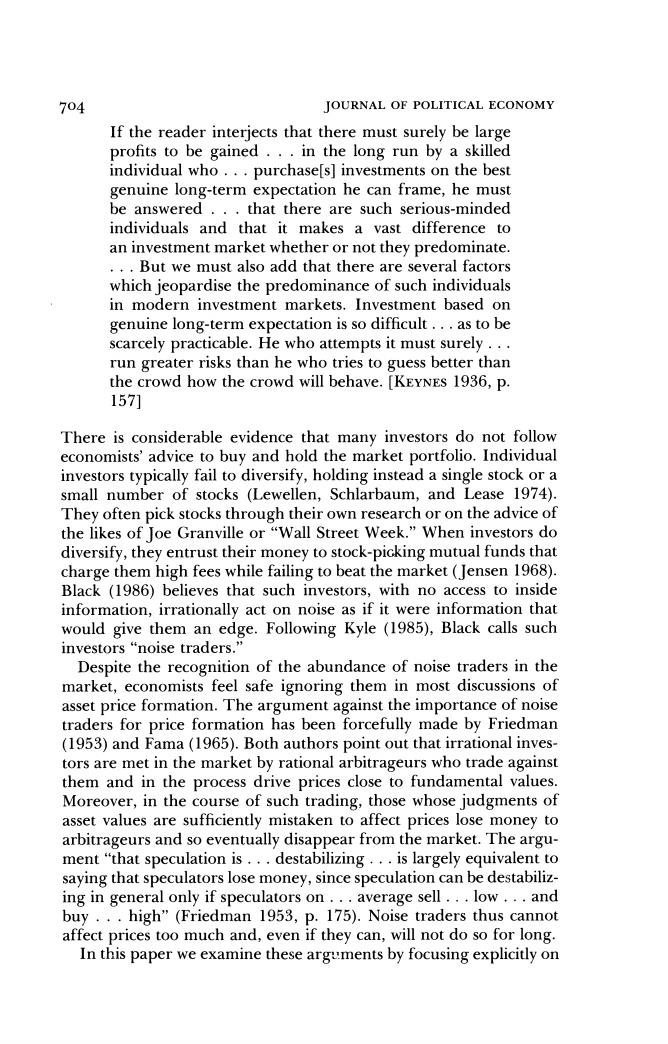正在加载图片...

704 JOURNAL OF POLITICAL ECONOMY If the reader interjects that there must surely be large profits to be gained...in the long run by a skilled individual who...purchase[s]investments on the best genuine long-term expectation he can frame,he must be answered...that there are such serious-minded individuals and that it makes a vast difference to an investment market whether or not they predominate. ..But we must also add that there are several factors which jeopardise the predominance of such individuals in modern investment markets.Investment based on genuine long-term expectation is so difficult...as to be scarcely practicable.He who attempts it must surely... run greater risks than he who tries to guess better than the crowd how the crowd will behave.[KEYNES 1936,p. 157] There is considerable evidence that many investors do not follow economists'advice to buy and hold the market portfolio.Individual investors typically fail to diversify,holding instead a single stock or a small number of stocks (Lewellen,Schlarbaum,and Lease 1974). They often pick stocks through their own research or on the advice of the likes of Joe Granville or "Wall Street Week."When investors do diversify,they entrust their money to stock-picking mutual funds that charge them high fees while failing to beat the market(Jensen 1968). Black (1986)believes that such investors,with no access to inside information,irrationally act on noise as if it were information that would give them an edge.Following Kyle (1985),Black calls such investors "noise traders." Despite the recognition of the abundance of noise traders in the market,economists feel safe ignoring them in most discussions of asset price formation.The argument against the importance of noise traders for price formation has been forcefully made by Friedman (1953)and Fama(1965).Both authors point out that irrational inves- tors are met in the market by rational arbitrageurs who trade against them and in the process drive prices close to fundamental values. Moreover,in the course of such trading,those whose judgments of asset values are sufficiently mistaken to affect prices lose money to arbitrageurs and so eventually disappear from the market.The argu- ment"that speculation is...destabilizing...is largely equivalent to saying that speculators lose money,since speculation can be destabiliz- ing in general only if speculators on...average sell...low...and buy...high"(Friedman 1953,p.175).Noise traders thus cannot affect prices too much and,even if they can,will not do so for long. In this paper we examine these arguments by focusing explicitly on